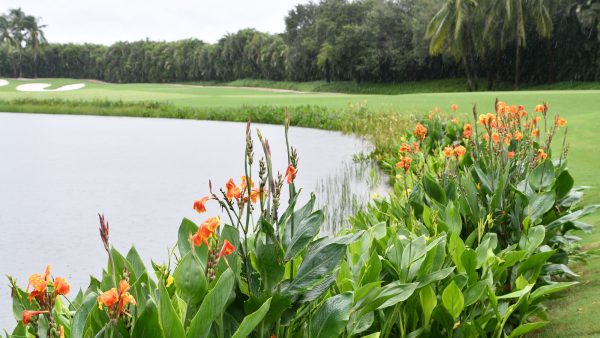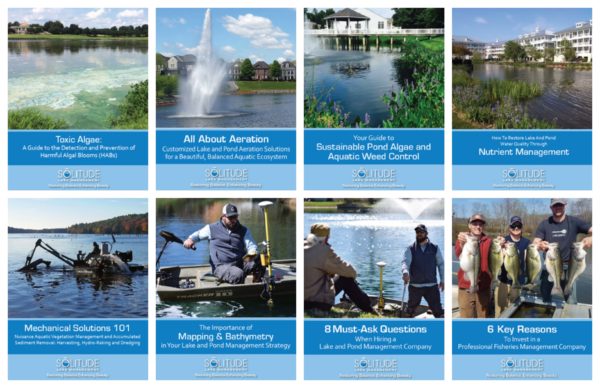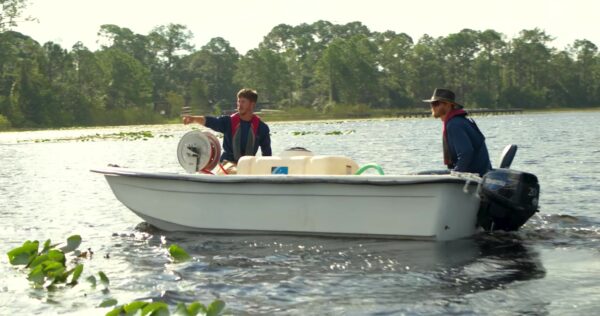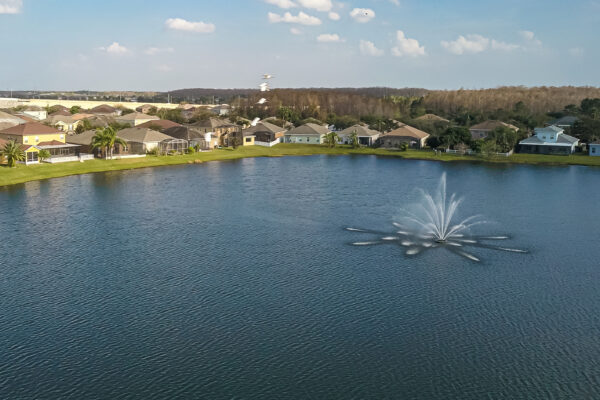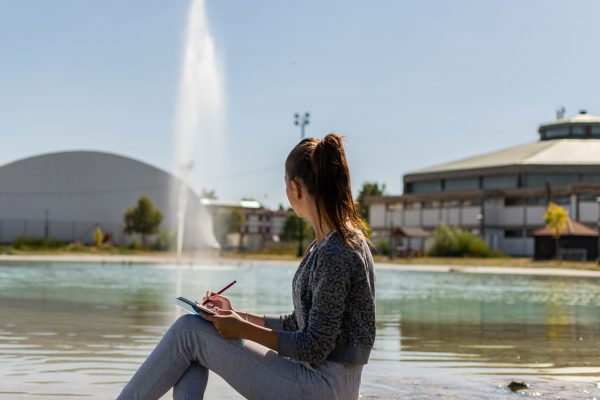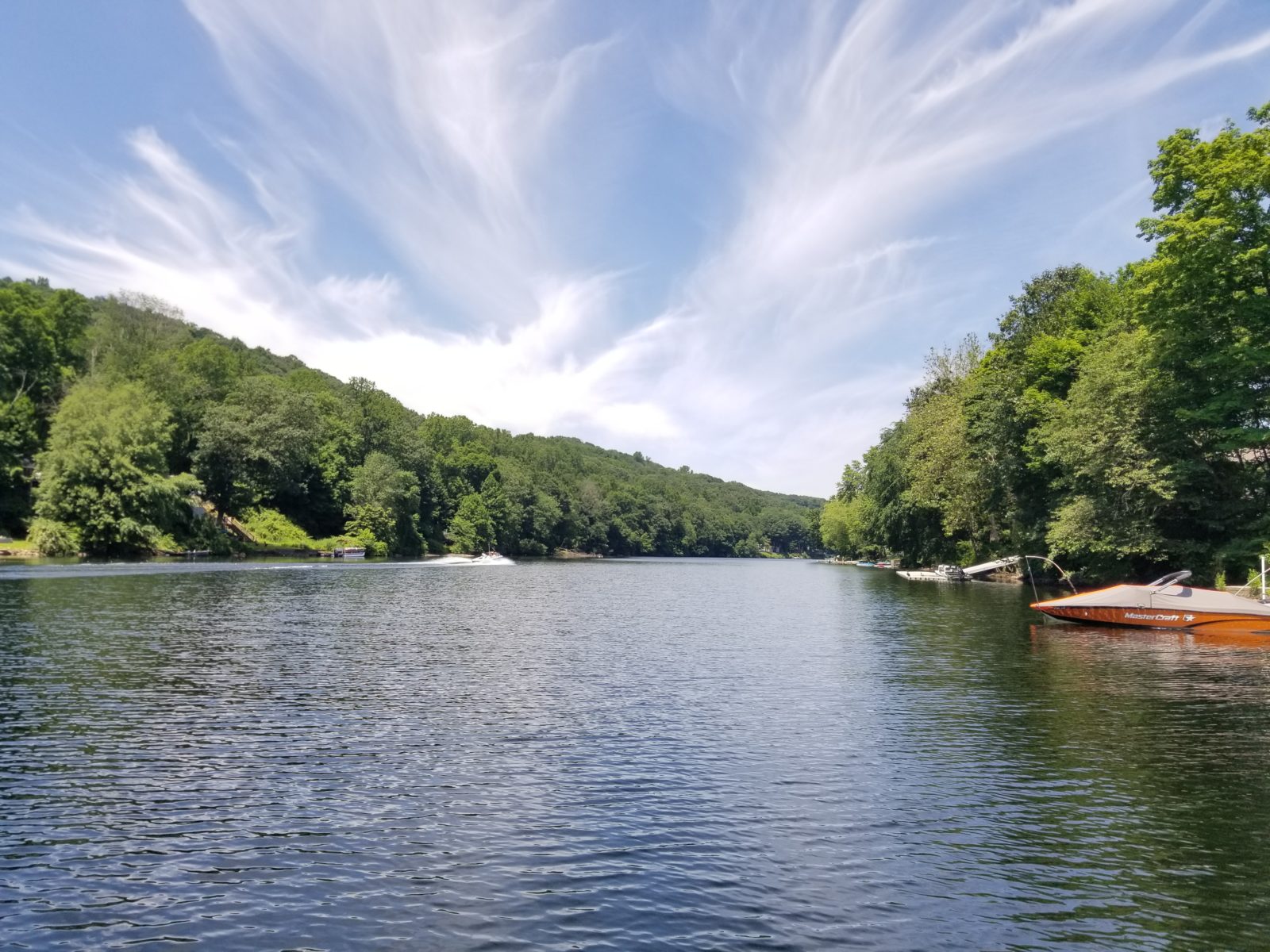By Industry Expert David Beasley, Fisheries Biologist
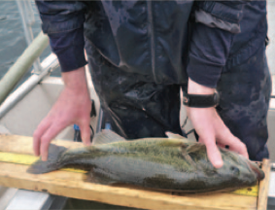 Ponds and lakes come in all shapes and sizes, each with unique characteristics setting them apart. One similarity amongst many of them is they have two fish species in common; Bluegill and Largemouth Bass.
Ponds and lakes come in all shapes and sizes, each with unique characteristics setting them apart. One similarity amongst many of them is they have two fish species in common; Bluegill and Largemouth Bass.
Bluegill are normally the primary forage fish and they are well designed for that purpose. Bluegill spawn over the course of the spring and summer. During this time hundreds of thousands, or even millions of young bluegill serve as a food source for other fish, mammals, birds, reptiles, amphibians, invertebrates and even insects. It is safe to say that Bluegill play a vital role in the ecosystem.
Largemouth Bass are the other species found in most water bodies. Largemouth Bass are often the top predator fish. They reproduce in the spring once water temperatures reach the upper 60’s and have thousands of young. As a result, they have a tendency to overpopulate. Largemouth Bass are aggressive predators who require a great deal of food to grow, consuming around 10 lbs of fish to grow one pound. Multiply 10 lbs by the number of bass you have in your pond and you will often find that you need thousands of pounds of smaller fish in your pond to simply put 1 lb of growth on each of the bass.
In our service area, most of the ponds and lakes are not naturally fertile. Fertile ponds with mineral rich water have the ability to maintain plankton populations. Plankton are small organisms that serve as the base of the food chain. The lack of plankton results in a poor base to the food chain. As a result the small Bluegill don’t grow quickly and end up being eaten while they are still very small; and, as a result, the predator fish are unable to get the food needed to grow.
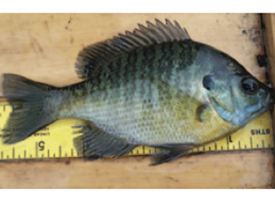 Breaking this negative cycle can be done in several ways, but the most practical method is to reduce the number of mouths to feed. Actively harvesting bass on an annual basis will allow the remaining bass along with the other wildlife using the pond to have a chance to prosper. Harvesting bass is often required in the process of maintaining a healthy, balanced, prosperous pond that all walks of nature can better utilize and enjoy.
Breaking this negative cycle can be done in several ways, but the most practical method is to reduce the number of mouths to feed. Actively harvesting bass on an annual basis will allow the remaining bass along with the other wildlife using the pond to have a chance to prosper. Harvesting bass is often required in the process of maintaining a healthy, balanced, prosperous pond that all walks of nature can better utilize and enjoy.
If you are interested in establishing a more balanced ecosystem in and around your pond, please feel free to contact us to discuss the different ways to identify if a water body is out of balance and also learn more on the different ways to correct a pond that is out of balance.
Contact the experts at 888-480-5253 for all of your lake, pond and fisheries management needs.
David Beasley is a Fisheries Biologist with SOLitude Lake Management. Since 1998, SOLitude Lake Management has been committed to providing full service lake and pond management services that improve water quality, preserve natural resources, and reduce our environmental footprint. Services are available throughout the Eastern United States. Fisheries management consulting and aquatic products are available nationwide. Learn more about SOLitude Lake Management and purchase products at www.solitudelakemanagement.com.

